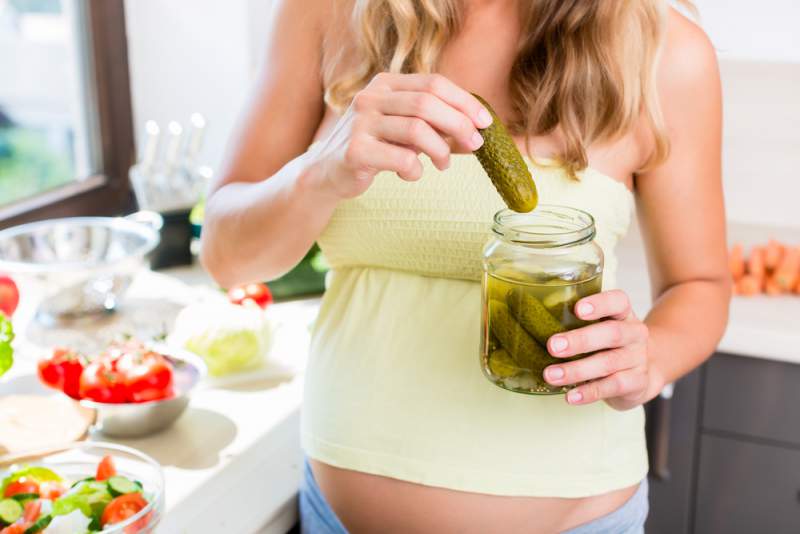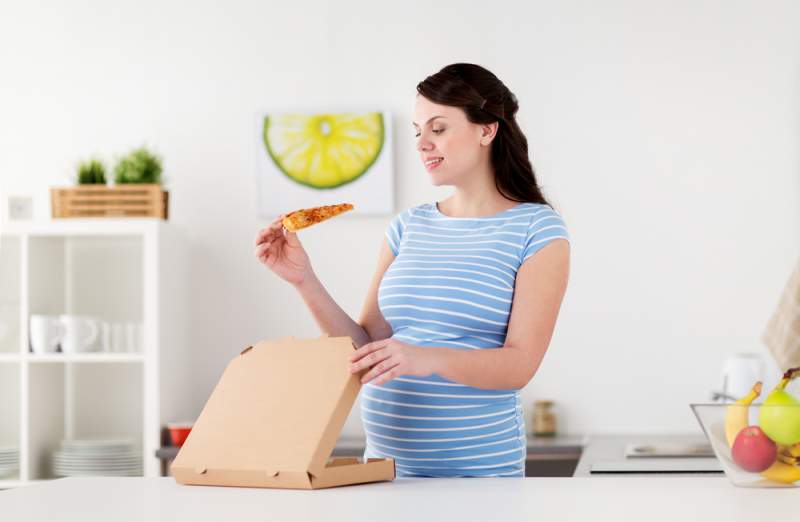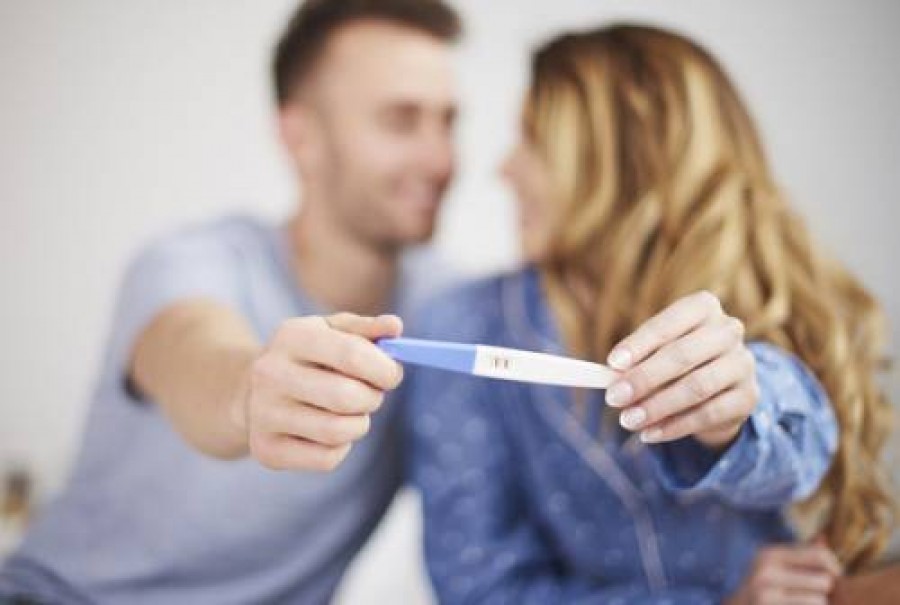Food Cravings during Pregnancy

During pregnancy, a woman’s body undergoes a number of physical and emotional changes, and fluctuating hormones are usually to blame for random food cravings.
With another small human living inside of you, it’s no wonder you’re so hungry.
You might crave high sugary foods, fried and fatty foods, or odd and bizarre concoctions. Whatever the case, sudden food aversions and cravings are due to the effects of pregnancy hormones that can change the way food tastes and smells.
How to deal with cravings?
It’s okay to spoil yourself once in a while as long as you continue to maintain an overall healthy diet filled with nutritious food that’s good for you and your baby.
Sugary, sweet and decadent foods are unhealthy and filled with lots of artificial ingredients. When these cravings come about, it’s okay to give into them occasionally, but try not to over-indulge as too much sugar can cause excessive weight gain, dental problems or gestational diabetes.
Artificial spreads, salad dressings, chocolate, potato chips, biscuits, salty food, pastries, ice-cream and fizzy drinks should be limited, as sugar does not provide any other nutrients and can even increase the amount of cholesterol in the blood.
Try to cut down on saturated fat and instead eat more monounsaturated fats like olive oil, natural spreads – almond butter or natural peanut butter and avocado.

How to manage food cravings?
#1 A healthy diet
Eating healthy should be a priority throughout your whole life, but more so when you’re pregnant or preparing to become pregnant. Aim for a balanced diet combining all the five food groups to help you feel good and give your baby the essential nutrients they need.
Vegetables and legumes, grains, dairy, meat, poultry, seafood, and fruit should all be included in your diet.
However, there are some foods that are not recommended during pregnancy like soft cheeses, unpasteurised dairy, liver and pate and cured deli meats.
Eating healthy also helps control cravings that try to get in the way of a well-balanced diet. Although indulging in your food cravings in moderation is okay every now and then, don’t allow it to become a daily occurrence that can impact your health as well as your baby’s.
Another way to manage food cravings is to keep track of weight, particularly these days with rising rates of obesity and excessive weight gain. On average, pregnant women will need to consume only 300 more calories per day than they did prior to pregnancy.
Some people think “eating for two” is an excuse to over-indulge, but there really is not much difference to food amounts than before pregnancy.
#2 Exercise
Exercise has a bit of a bad reputation among pregnant women, but light exercise is not only good for your body, but for your mind as well.
Exercise provides numerous benefits during pregnancy, including the possibility to kick food cravings to the curb, as keeping fit will keep your body and digestive system running smoothly.
The cycle of exercising and eating right can become a habit and those extra food cravings may disappear, particularly because you’ll be distracted while your body is producing endorphins, which cause you to feel happy. Mental health plays a role in food consumption, which is why it’s easy to overeat if you’re feeling unmotivated, sluggish or emotional.
To read more on safe exercises to do during pregnancy, read here.
#3 Get support
Like mentioned above, intense food cravings or overeating can be a sign of overwhelming stress during pregnancy. It’s not a bad idea to seek support if you are having difficulty with this, as there may be an underlying issue or pre-existing mental health condition that you are already aware of.
Visit your doctor for further information.

When to expect food cravings during pregnancy?
For most women, food cravings usually begin during the first trimester and get stronger in the second trimester, but start to decline in the third. This may be because the body is working extra hard, has another person to feed, hormones are rapidly changing or the mere comfort that food can bring.
Research shows that sour tastes are more likely to occur during the second and third trimester, which explains the classic and stereotypical pickle craving. The same is said about fruit, as it’s also another common pregnancy craving due to the sweet and sour fusion.
However, in the first trimester, an intensified perception of bitterness is apparent, with scientists suspecting women are able to isolate bitter tastes as a protective mechanism, warning them against consuming things like alcohol during the critical stages of foetal development. These bitter aversions apparently reduce by the third trimester, when the significant phase of the baby’s development has ended.
There have been instances where women still crave foods after their baby is born, but these are generally mild and may only include one type of food every few days, instead of every few hours.
Why do pregnant women crave food?
According to research, approximately 50 to 90 per cent of women have some kind of specific food craving during their pregnancy.
Medical experts still aren’t 100 per cent sure why this happens, especially when it comes to specific tastes, textures or flavour combinations like salty and sweet.Some say that food cravings may be your body’s way of obtaining essential vitamins and nutrients during pregnancy.
This may explain why pregnant women have strong urges to eat odd combinations like pickles dipped in peanut butter – the sodium and protein of both ingredients could play a role here.
Research also suggests that a nutritional deficiency could be to blame for the influx of food cravings during pregnancy. Anemia is common among pregnant women and is the most common cause, accounting for 75 to 95 per cent of all cases.
According to the National Institutes of Health (NIH), women should increase their iron intake from 18mg per day to 27 mg per day to cater to their growing baby’s needs, and to store extra iron for any blood loss that can happen during child birth. However, if you’re pregnant, make sure not to consume more than 45 mg of iron each day.
Another reason for food cravings could be the amino acid neuropeptide Y (NPY), that’s produced by neurons in the sympathetic nervous system to increase your appetite.
According to a study, NPY production increases during pregnancy causing women to want to eat a number of different foods that might not sound so appetising together. NPY exists in all of our bodies and travels from the hypothalamus to various parts of the brain to increase our appetite. But, pregnant women or overweight people have high amounts of NPY.
In addition, chocolate for example is a food item that is significantly popular among pregnant women or even during the menstrual cycle. This may be because of the mood-altering endogenous compounds such as phenylethylamine, tyramine, serotonin, tryptophan and magnesium. Other foods like cheese and dairy also include these compounds but aren’t as appealing as chocolate
Non-food cravings
You may have heard about pregnant women craving weird and odd things that aren’t food. This is known as Pica – the practice of craving substances such as dirt or chalk. It’s bizarre, but it does happen.
There’s not much research to show why these non-food cravings occur, but it has been said that it may be because of a connection to an iron deficiency or the body’s attempt to obtain crucial vitamins or minerals that are missing through normal food consumption.
Common Pica cravings
Some common non-food substances that are craved during pregnancy include dirt, clay and laundry powder. Others include burnt matches, cigarette ashes, stones, charcoal, mothballs, soap, sand, plaster and baking soda, among others.
Risks to the baby
Pica can be harmful to a baby for obvious reasons.
Eating non-food substances can interfere with the nutrient absorption of healthy foods and can actually cause a deficiency or further damage to an unborn baby.
Pica cravings are a concern because the non-food substances usually include toxic chemicals and materials that can also impact the woman’s health at the same time. If you are having these cravings, it’s best to speak to your doctor as soon as possible to avoid consuming anything dangerous.
Conclusion
Overall, it’s clear that women will crave a variety of food while pregnant, some that may seem odd or bizarre. It’s important to maintain a healthy diet and to control intense cravings for foods that are high in sugar and fat via a variety of methods like exercise, portion control or emotional support if that’s something you think you may need.
In the meantime, be sure to check that all your vitamin and nutrient levels are normal and aren’t contributing to any strange food urges.



